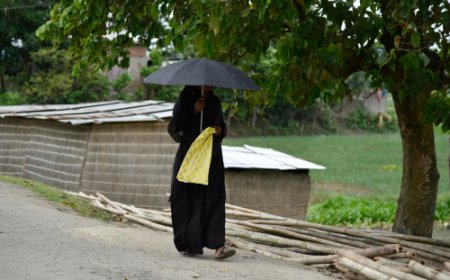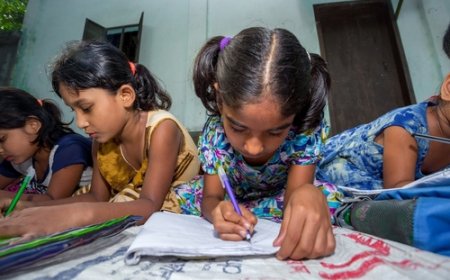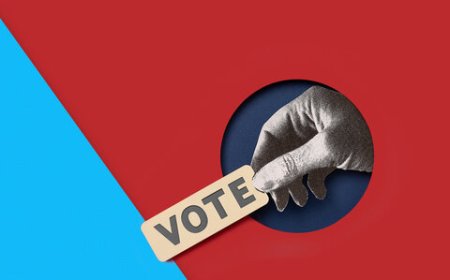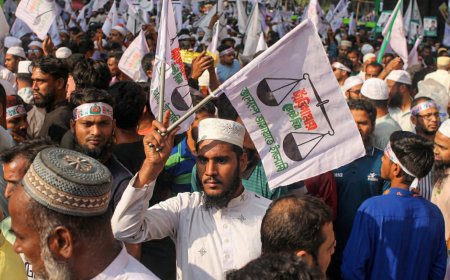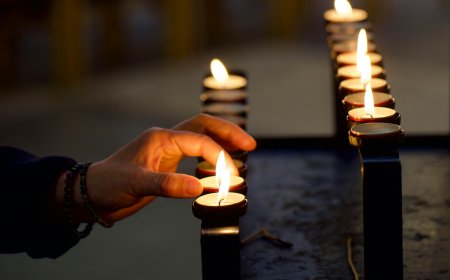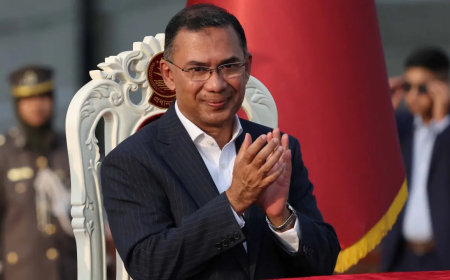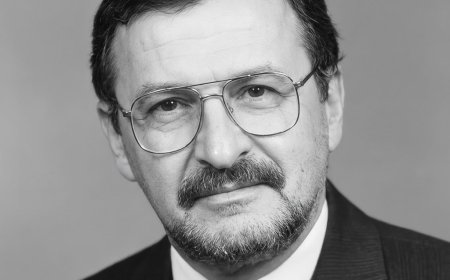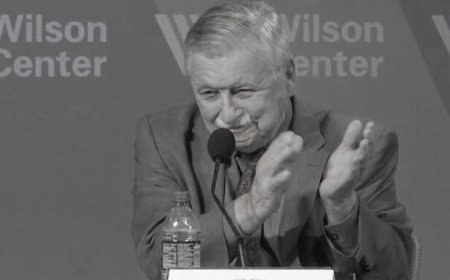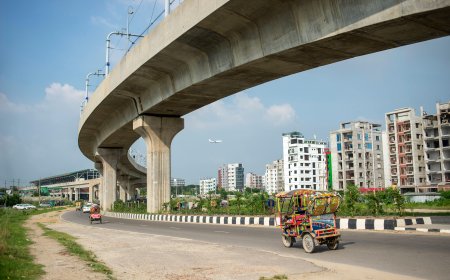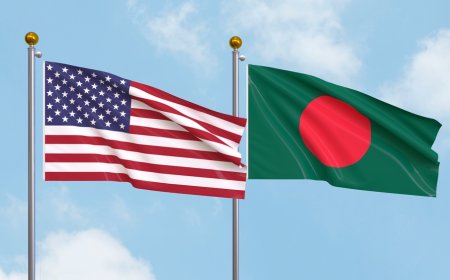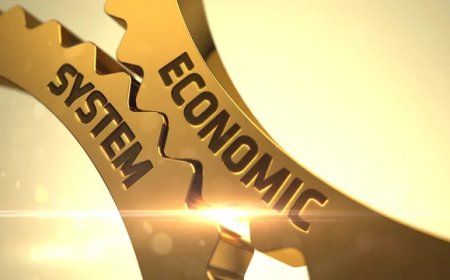Generation Unbound: Message From Kathmandu
Across Nepal, Sri Lanka, Bangladesh, and far beyond, the message is clear: no one is above accountability. Corruption carries a heavy cost. Leaders who imagine a country belongs to a privileged circle will find themselves confronted by a generation unwilling to be silenced.
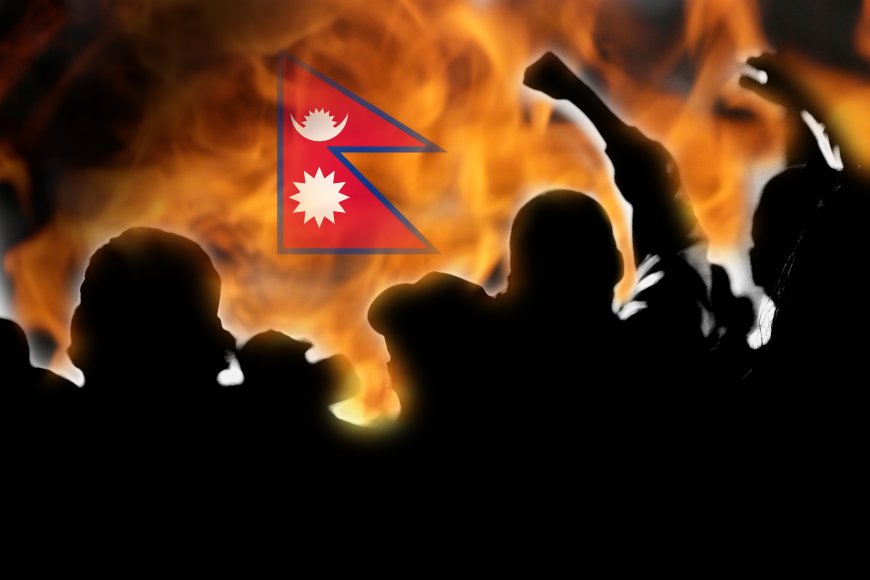
Nepal, a nation of just three million people, has jolted South Asia with a sudden youth-led uprising that forced Prime Minister K.P. Sharma Oli from office in early September 2025.
What began as scattered demonstrations quickly spiraled into a nationwide revolt -- leaving at least 72 people dead, thousands injured, and key government installations, including the Parliament building, damaged by fire. Political offices and homes of senior leaders were ransacked, with media houses also facing the wrath of an enraged public.
The collapse of the Oli government and the hurried formation of an interim administration have since raised the same unsettling question across the region: Why did Nepal erupt so violently, and what does this upheaval say about the political mood of the global youth?
Generation Tired of Waiting
At the heart of Nepal’s movement lies a deeply disillusioned Gen Z -- angry at years of corruption, nepotism, unemployment, and growing inequality. Their frustrations had long simmered on social media, often dismissed by authorities as mere “digital noise.”
The spark came from an unexpected source.
As Indonesian youths rallied under the viral “Hashtag Nepokid” campaign to expose corruption among political elites, Nepal’s youth saw their own grievances reflected. Inspired, they mobilized rapidly online. A digital rumble soon transformed into a nationwide revolt -- an uprising no one in Kathmandu’s corridors of power had anticipated.
The government’s abrupt decision to block 26 social media platforms became the final tipping point. What was intended as a digital shutdown instead ignited a countrywide explosion of anger. The very tools the youth used to organize daily life became symbols of a political system trying to silence them.
Echoes of Colombo and Dhaka
What unfolded on the streets of Kathmandu mirrors the mass mobilizations seen in Sri Lanka in 2022 and Bangladesh in August 2024. The protests and uprisings symbolize frustration with a system seen as rigged and inaccessible. In each case, the triggers were similar: corruption, economic distress, elite detachment and privilege, nepotism and an unaccountable leadership increasingly insulated from the real struggles of the young.
Bangladesh’s youth, frustrated by unemployment, extortion, violence on campuses, judicial manipulation, erosion of democratic norms and political killings, ignited a protest movement that ultimately reshaped the country’s political landscape. Sri Lanka’s youth had done the same earlier. Now Nepal has joined this chorus of public fury -- a regional trend defined by a generation unwilling to accept old political games.
After the Flames, a Moment of Reckoning
In the aftermath of Nepal’s unrest, newly appointed Prime Minister Kirki announced fresh elections within six months, pledging that her interim government would return to their previous professions after handing over power. Strikingly, many young protesters returned to classrooms, cleaned the streets, and even apologized for the destruction. These gestures reflect both the sincerity of the new leadership and the patriotism of Nepal’s youth -- a generation both angry and earnest.
Gen Z: The Region’s New Political Force
One of the most important takeaways from these movements is the emergence of Gen Z as a formidable political actor. Hyper-connected, digitally fluent, and unafraid of authority, this generation can mobilize with unprecedented speed. In Bangladesh alone, according to BTRC, some 121 million people are online -- over 67% of the population -- with more than half between the ages of 18 and 34. Social media has become their megaphone: exposing corruption, amplifying dissent, and rallying public opinion.
What older leaders once mocked as “keyboard activism” has redrawn political landscapes. In Bangladesh, Gen Z not only helped shape regime change but has since begun to participate in governance and sectoral reforms. Nepal’s unrest, too, was born and sustained in these digital spaces.
A Warning to Governments Near and Far
Nepal’s crisis is not an isolated event but part of a broader pattern sweeping South Asia, Southeast Asia, and even the Americas. The “No Kings” protests in the United States -- from mid-June to mid-October this year -- have seen millions mobilize peacefully against authoritarianism and corruption. The movement, dubbed internationally as “No Dictators” or “No Tyrants,” reflects the same frustrations: a rejection of unaccountable leadership and a demand for political dignity.
The global commonality is unmistakable: a widening gap between rulers and ruled.
Across nations, young citizens feel unheard, unseen, and increasingly unwilling to tolerate the arrogance of entrenched elites. The inequality between ordinary youths and privileged political heirs turned out to be their reason for anger and outrage and intolerance.
The Lessons Leaders Ignore at Their Own Risk
Across Nepal, Sri Lanka, Bangladesh, and far beyond, the message is clear: no one is above accountability. Corruption carries a heavy cost. Leaders who imagine a country belongs to a privileged circle will find themselves confronted by a generation unwilling to be silenced.
Gen Z is reshaping political expectations faster than most governments can comprehend. Their tools are digital, their networks transnational, and their patience for injustice short. Social media has provided them an unprecedented platform -- and any attempt to shut it down, as Nepal learned, can trigger a backlash of historic proportions.
Today’s leaders must bridge this widening generational divide. They must listen, engage, and reform -- or risk being swept aside like Nepal’s fallen government.
Mustafa Kamal Rusho, a retired Brigadier General, works with the Osmani Centre for Peace and Security Studies.
What's Your Reaction?













